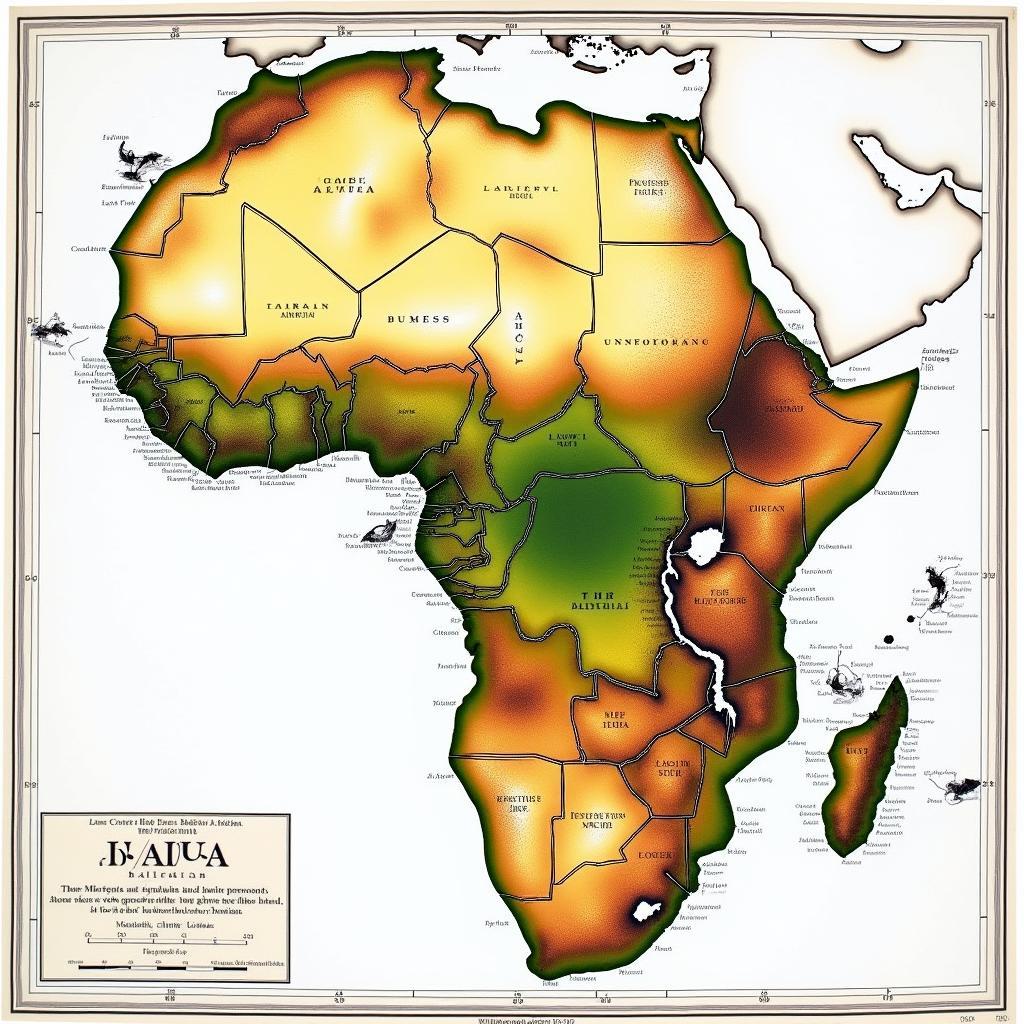African Guinea Fowl: The Crested Bird of the Savanna
The African Guinea Fowl, a common sight across the sub-Saharan savanna, is a distinctive bird known for its unique appearance and bold personality. With its striking plumage, loud calls, and social behavior, the guinea fowl is a fascinating creature that plays an important role in the African ecosystem.
A Feathered Masterpiece: The Appearance of the African Guinea Fowl
The African guinea fowl is instantly recognizable with its round body, small head, and bare, greyish-blue face. The most striking feature is its plumage: a black canvas densely covered in white pearlescent spots. This intricate pattern, reminiscent of a starry night, gives the bird an almost jewel-like appearance. While most species share this general appearance, there are subtle variations in size and plumage patterns among the different guinea fowl species found across Africa.
The guinea fowl’s crown is adorned with a bony casque, a helmet-like structure that varies in shape and size between species. Some species sport a prominent, tall casque, while others have a smaller, more rounded one. The casque adds to the bird’s unique silhouette and has been a source of fascination for naturalists and birdwatchers alike.
More Than Just a Pretty Face: The Life of a Guinea Fowl
African guinea fowls are highly social birds, living in flocks that can number from a few individuals to hundreds. These flocks are led by a dominant pair, who guide the group in their daily activities. The guinea fowl’s loud, harsh calls are a constant feature of the African savanna and are used for a variety of purposes, from warning of danger to maintaining contact within the flock.
As ground-dwelling birds, guinea fowls spend most of their time foraging for food. Their diet consists mainly of insects, seeds, and berries, making them an important part of the savanna’s ecosystem by helping to control insect populations and disperse seeds. They are also known to occasionally consume small reptiles and amphibians.
The Guinea Fowl in African Culture
The African guinea fowl holds cultural significance in many parts of the continent. Its striking appearance and bold personality have made it a popular subject in African folklore, art, and music. In some cultures, the guinea fowl is seen as a symbol of good luck, while in others it is associated with wisdom and resourcefulness.
“The guinea fowl, with its watchful eyes and loud alarm calls, is a constant reminder to stay vigilant and protect what is precious,” says Dr. Abena Asantewa, an anthropologist specializing in West African folklore. “Its intricate plumage is also a source of inspiration for traditional weaving and beadwork, reflecting the beauty and diversity of the natural world.”
Beyond the Wild: The Guinea Fowl and Humans
African guinea fowls have been domesticated for centuries, primarily for their meat and eggs. Guinea fowl meat is lean and flavorful, while their eggs are smaller than chicken eggs but richer in taste. As domesticated animals, guinea fowls are known for their hardiness and ability to thrive in a variety of environments. They are also excellent foragers, able to control pests and weeds in gardens and farms.
The Future of the African Guinea Fowl
Despite their widespread distribution and adaptability, African guinea fowl populations are facing threats from habitat loss, hunting, and the illegal wildlife trade. Conservation efforts are underway to protect these birds and ensure their survival for future generations.
The African guinea fowl, with its vibrant plumage, distinctive calls, and intriguing behavior, is a captivating creature that embodies the rich biodiversity of the African continent. As we continue to learn more about this fascinating bird, it is essential that we work to protect it and its habitat, ensuring that its captivating presence continues to grace the African savanna for generations to come.
FAQs about African Guinea Fowl
What is the lifespan of an African guinea fowl?
In the wild, African guinea fowls can live for 7-10 years. In captivity, they can live even longer, up to 15 years.
What is the difference between a male and female African guinea fowl?
While both sexes share similar plumage, males tend to be slightly larger than females.
Can African guinea fowls fly?
Yes, African guinea fowls can fly, but they prefer to run and only fly short distances when threatened.
Are African guinea fowls good pets?
African guinea fowls can make good pets, but they require a lot of space and can be noisy. They are also social birds and do best in flocks.
Need More Information?
For more information on African guinea fowl and other fascinating creatures of the African continent, explore these articles:
We at African Life are dedicated to sharing the beauty and diversity of the African continent. Contact us at +255768904061, kaka.mag@gmail.com or visit our office in Mbarali DC Mawindi, Kangaga, Tanzania for any inquiries. Our team is available 24/7 to assist you.

